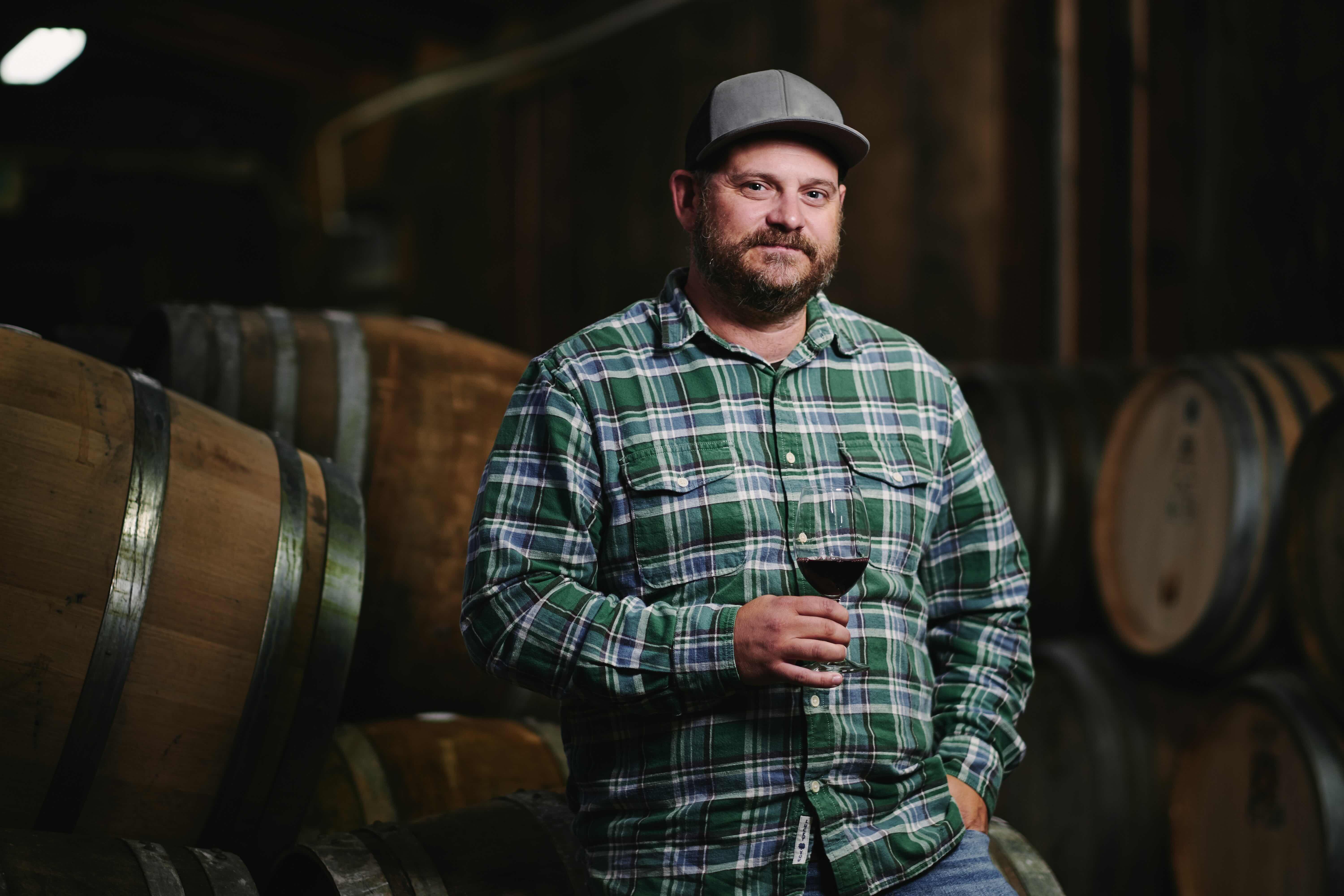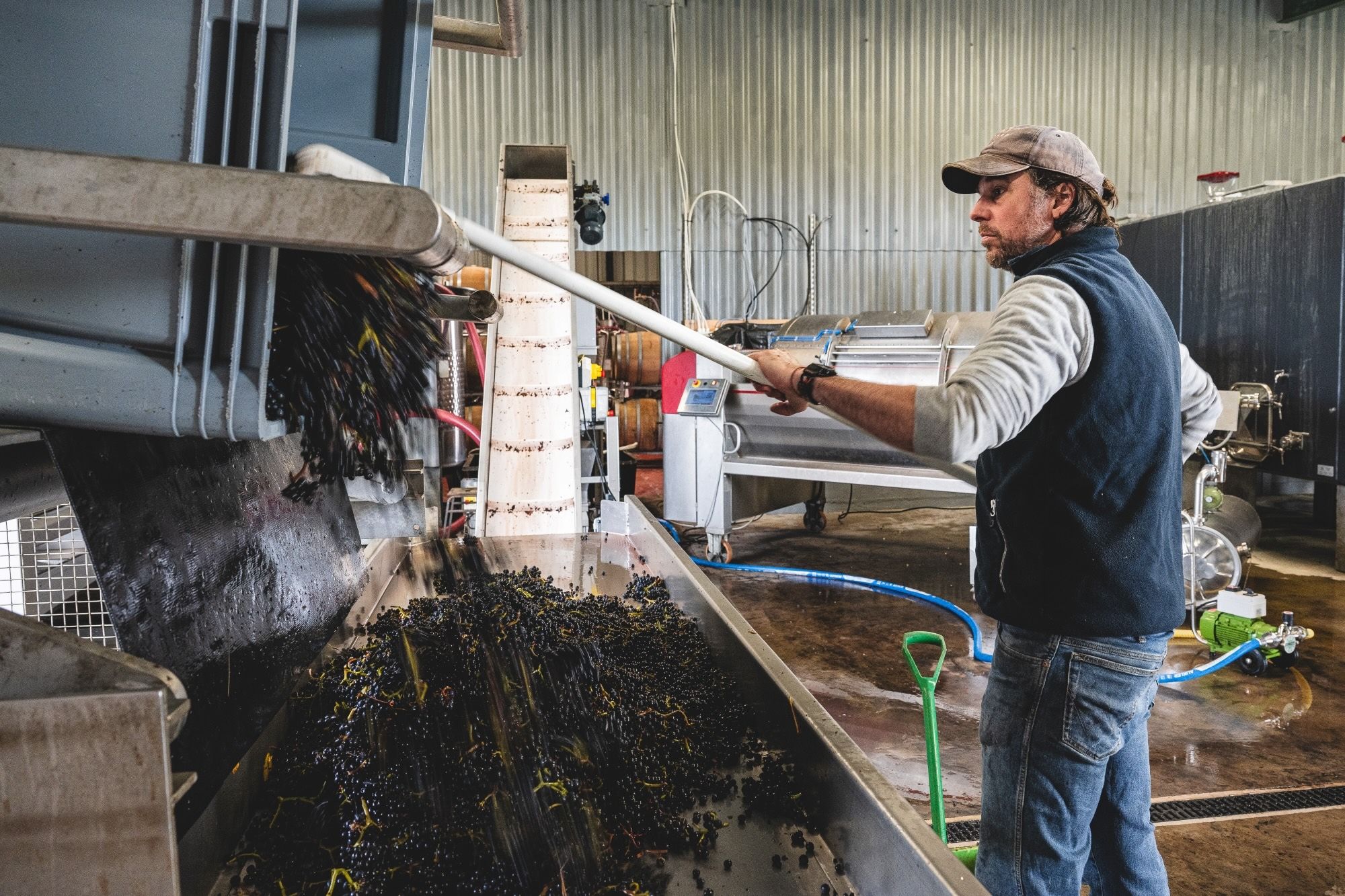In addition to the story behind Palmers Dry Gin The Buyer recommends 6 Essential Gins that every self-serving bar person should have on their radar
It’s not that long ago that gin looked dead in the tonic. A once great British institution on course to go the way of Radio Rentals, Rumbelows and the rest. Synonymous with blue rinses at tea time, there was really nothing fashionable about this juniper-based spirit that looked certain to surrender its precious space on the bar to riveting new vodka brands or achingly-cool tequila shots instead.
Then something resembling a gin-quake happened. No-one can pinpoint the precise date, but the epicentre was almost certainly a west London suburb, when Sipsmith cranked up its copper stills and the average age of the gin nut dropped by several decades.
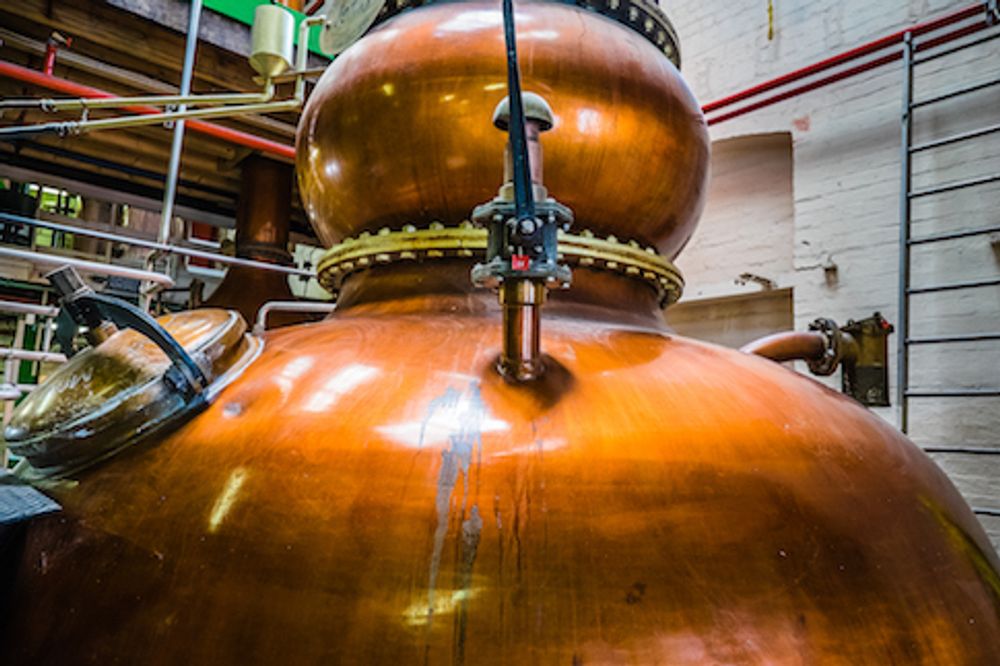
The explosion of craft brands – Britain now boasts 315 distilleries – has driven the boom, but the whole sector is enjoying double-digit sales increases as Britain’s drinkers go mad for mother’s ruin: the Wine and Spirit Trade Association estimates ongoing growth of almost 40% in the category. In the year to March 2018, an astonishing 55 million bottles of gin were sold in the UK.
Whilst the boom drives the stills in the craft distilleries, it has also resulted in the old-fashioned big boys being busier than ever. Master Distiller Rob Dorsett is one such veteran, having devoted an 18-year career to concentrated spirit at Birmingham’s Langley Distillery.
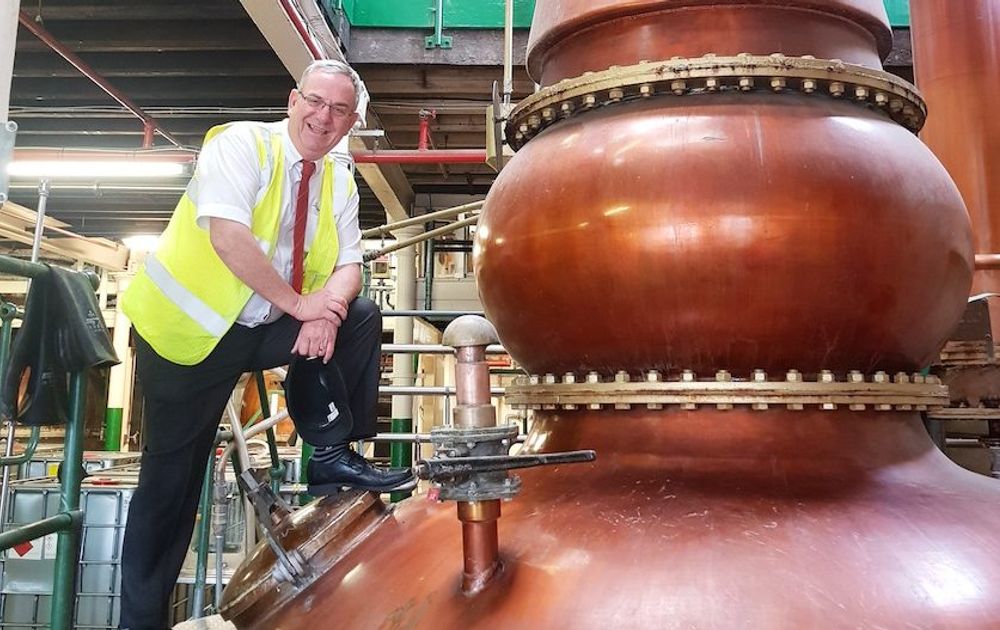
“I want my botanicals unadulterated” Master Distiller Rob Dorsett, Langley Distillery.
Responsible for more than 350 different labels, this is the ‘Charlie and the Chocolate Factory of gin-making’. If that sounds like botanical heaven, then the distillery, in a dreary Birmingham suburb, makes an unprepossessing first impression: grim, functional buildings look like a Lowry brought to life. Inside, furry carpets, aromas of pork pie, and a barrage of forbidding plastic health and safety signs greet the first-time visitor.
Then the fun starts. The distillery building – once part of a brewery – is home to a ‘Swan Lake’ of veteran stills, including what’s believed to be the oldest functioning example in the country, dating back to the mid-1800s. There are seven copper stills, all named after family members and significant figures who have worked there over the years.
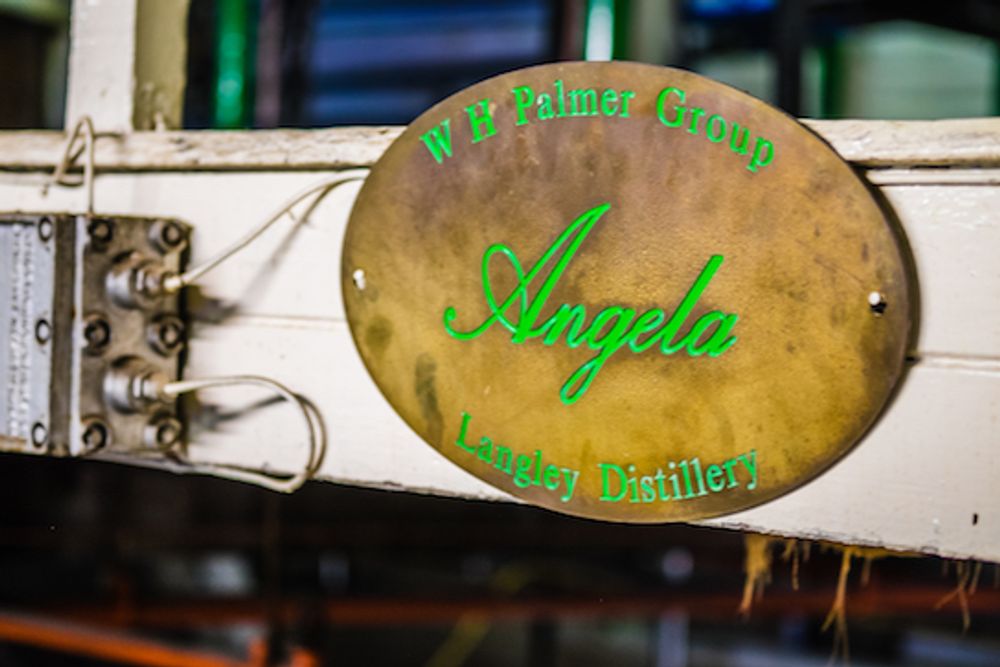
Aromas of juniper, citrus and spice fill the air as we admire ‘Angela’ (named after the company’s founder, Angela Palmer) huffing and puffing her way through a distillation, destined to create a concentrated spirit that will then be ‘let down’ to dilute it to the required strength.
Dorsett uses English wheat spirit, “absolutely the best you can get,” using recipes, some of which date back two hundred years. “In distilling, you might change the ingredients, but the method is always the same,” he tells me.
The store room is a divine assault on the senses. Sacks of juniper, sourced from Macedonia, are piled high, alongside coriander seed from Bulgaria and citrus peels from Spain. Then there’s orris root, angelica, liquorice, nutmeg and cassia bark. It’s all fragrantly reminiscent of Istanbul’s Grand Bazaar.
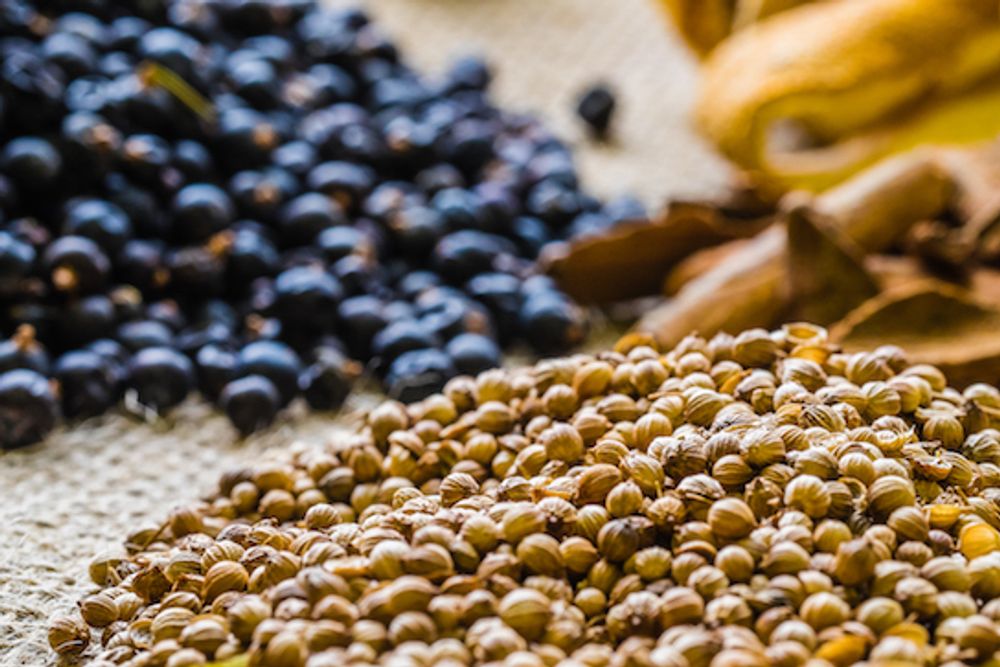
Dorsett works with dozens of clients to create new gins: “They can either come to me with a specific idea for botanicals, or just a sense of what they would like for the end product. We will come up with something”. Langley Distillery has a micro-still for small 10 litre test runs.
No longer content solely with conjuring up creations for customers, Langley Distillery has recently launched its own brand of gin, to capitalise on the boom and give the family owners a chance to see their historic name emblazoned on a bottle.
Launched last year, Palmers Dry Gin is a mix of seven botanicals and is designed to feel like a high quality traditional gin, rather than aiming to tap into any new trends or take on the craft brands. Alongside it, there is also a premium ‘Distillers Cut’, a one shot blend of 15 botanicals, and a limited edition ‘Celebration Edition’ blend, featuring strawberries and rose petals, which launched just in time for the Royal Wedding back in May. The company also makes a Birmingham gin, sold exclusively at Selfridges in the city.
Whilst Langley remains primarily focused on making gins for its customer base, there are also plans to expand the Palmer’s range further, with a Christmas gin potentially in the offing.
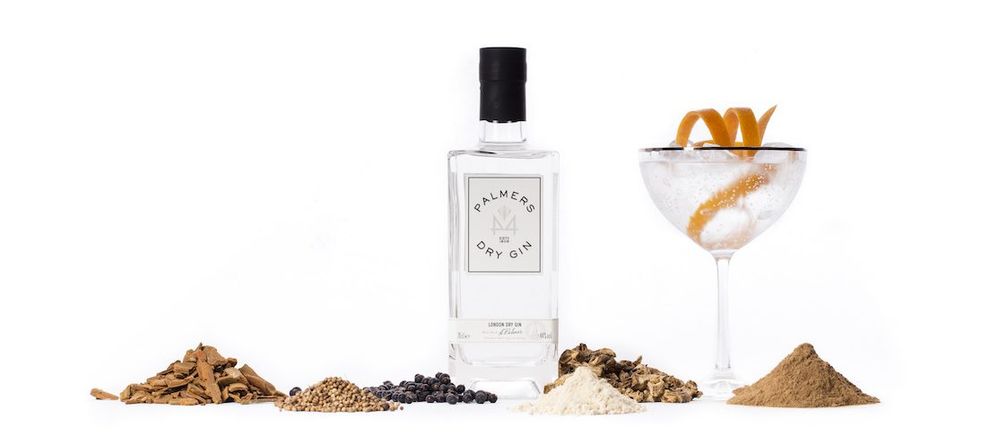
What goes up, often comes down again, so could we be heading for one of mother’s heads? Dorsett is confident there’ll be no hangover: “We see plenty of headroom for growth in the sector. Sales are growing all the time, new brands are launching, and the current trend for classic cocktails like Negroni and Martini all make space for gin”.
Then there’s the mixer. The gin boom has fuelled a corresponding tonic burst, with the mighty Schweppes overtaken by Fever Tree and a host of new flavours launched onto the market. So which tonic water would a Master Distiller recommend for his carefully crafted gin? Well, it turns out, Rob Dorsett doesn’t use one: “I mix my gin with some sparkling water. It’s how you get the best from your botanicals. I want my flavours unadulterated”.
THE BUYER’S ESSENTIAL SIX GINS
Sipsmith London Dry Gin
The leader of the batch, this elegant gin, produced in Chiswick, west London, can claim much of the credit for the craft gin boom. Mellow, and billowing citrus blossom complexity, this works wonders in a Negroni. RRP £30.
Cotswold Dry Gin
One of those craft brands driving the current boom, this gin is designed to be different. The botanical party is joined by grapefruit peel and Cotswold lavender to make a delicious summer tipple, with a lovely ‘louche’ from the unfiltered citrus oils. Perfect for a summer night. RRP £35.
Berry Brothers London Dry Gin
Back from the grave, this gin has been re-created from a single vial of the original liquid that was discontinued in the 1950s when it fell out of fashion. In a beautiful bottle, this beguiling blend of violets and botanicals offers a silky, almost feminine, charm, making the quintessential London G and T. RRP £25.
Palmers Dry Gin
Definitely in the old school ‘classic’ mode, this is a more sophisticated and concentrated Gordon’s, with its seven botanicals. Based on an historic recipe, this was Rob Dorsett’s creation. Juniper doesn’t dominate, there’s delicate citrus blossom and some nuttiness. Smooth and pure, it’s 44% and feels destined for a Martini. RRP £28.
Foxhole Gin
This powerful London dry gin is made from a grape spirit that is created from ‘marc’ the skins of English wine grapes left over from wine production. It also comes in a Burgundy bottle so that the connection is not forgotten. Tremendous presence and good strength of flavour. The botanicals include juniper, coriander, angelica seed, orris root, liquorice root, bitter orange, fresh lemon zest and fresh grapefruit zest. RRP £39.95.
Psychopomp
Based in Bristol and producing a range of gins, Psychopomp Microdistillery is a Buyer favourite not just for its Woden gin that is available all year round but also for its limited edition (750 bottles) seasonal gins that, after two years, have the recipes replaced. Bars/ restaurants can also have their own bespoke gins produced. Woden is a classic London dry gin the botanicals of which include juniper berries, coriander seed, angelica root, cassia bark, fresh grapefruit zest and fennel seed. The classic serve is as a G&T with a wedge of grapefruit but it also works well in a range of cocktails. £35 RRP.
David Kermode is a writer, broadcaster, wine presenter and judge with his own website vinosaurus.co.uk



